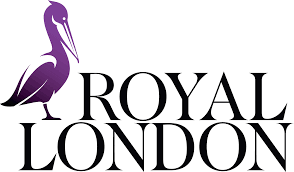Get Mortgage Protection Quotes From...





Mortgage Protection
Mortgage Protection Insurance Made Simple
You will find everything you need to know about Mortgage Protection Insurance below.
If you have a specific question on Mortgage Protection the sections below should help.

The Competition and Consumer Protection Commission of Ireland (CCPC) have advised that you should be aware obtaining mortgage protection from your lender/bank may prevent or make it more difficult for you to change lender in the future.
You may wish to change lender in the future for more competitive rates, to upgrade your home or to move house. If you purchase Mortgage Protection from a broker you will not be restricted from changing lenders.
Everything you need to know about
Mortgage Protection Insurance Ireland
Lets get started by taking a look at what Mortgage Protection Insurance is and what types are available for you to choose from.
What is Mortgage Protection Insurance?
Mortgage Protection Insurance is life insurance that is tied to your mortgage. If you pass away while still owing money on your mortgage, having this insurance cover means your mortgage will be paid in full.
You can have more than one person noted on your mortgage protection policy. For example, you and your partner may be noted. This is known as joint protection. If you have joint protection and one partner passes away, the mortgage is paid in full, so the surviving partner no longer needs to make mortgage repayments.
This type of cover is very important as if one partner passes away; family income could be halved or completely removed if only one partner worked. It would then be extremely challenging for the surviving partner to pay off the mortgage independently. If this were to happen and you did not have mortgage protection, selling your home may be the only option.
If you have children, mortgage protection insurance provides a safety net. If anything happens to you and/or your partner, the mortgage on the family home will be paid off in full.
The government has highlighted the importance of mortgage protection coverage to financially protect you and your family. They have made it a legal requirement for lenders to ensure you have mortgage protection. Lenders must check your cover before you can draw down your mortgage. There are some exceptions which we look at later on.
Types of Mortgage Protection Insurance
There are several different cover options available to you when choosing mortgage protection insurance. We take a look at each one below.
Single Cover
Exactly what it says on the tin, this cover is suitable for those taking out a mortgage independently. In the event of your death, your mortgage will be paid in full.
Joint Cover
If more than one person buys a home, joint cover will be required. If one of the people named on the policy passes away, the mortgage will be paid off. This means the surviving partner does not need to worry about making mortgage repayments on their own.
Reducing Term Cover
As you pay off your mortgage the amount you owe to the bank reduces over time.
With a reducing term cover policy, the amount paid out on your policy reduces in line with the amount left on your mortgage. So, for example, the payout you would receive if you died in year 5 would be higher than if you died in year 10. This is because, in year 10, you would owe less on your mortgage.
The premium you are offered when starting a reducing term policy is calculated based on the fact that the coverage will reduce over time. As this is taken into account when calculating your premium, your premium remains the same over time and does not reduce in line with your cover.
Level Term Cover
If you choose a policy with level term cover, the cover remains the same throughout the term of your mortgage.
Mary chose a level term policy with €300,000 cover. If Mary dies during the term, Mary will receive €300,000. The cover does not reduce in line with your mortgage.
Many people who have or plan to have children choose this cover as it ensures additional money is left along with the family home if the worst happens. As you get older the likelihood of death increases. With this cover, the amount received from the insurer after the mortgage is paid off increases over time, too, which is appealing to many parents.
Convertible Term Cover
Convertible term cover is a policy which allows you to make changes to your mortgage protection without having to provide details of your current health status. This type of policy can be useful when someone named on the policy has developed an illness which would normally result in a loaded (increased) premium or declined cover.
Your insurer must extend your policy at the rates they would charge a healthy person in your position.
Vincent can extend his life cover and pay the same rates as a healthy person would despite the fact that he would normally be declined cover by an insurer. This is because Vincent has the option to extend his cover without providing health information.
If Vincent did not have convertible term cover, he would not be able to extend the cover without providing health information to the insurer at which point the insurer would decline to extend the policy.
This above covers the basic principles of mortgage protection and the types available in Ireland. Below you will find more usable information in relation to dealing with your lender, the rules which must be followed, the exemptions which apply and what to do if you are having difficulty obtaining Mortgage Protection Insurance in Ireland.
Benefits to Purchasing Mortgage Protection From a Broker
Wondering if purchasing mortgage protection with a bank or broker is better?
The answer is clear.
Dealing With Your Lender
Mortgage Protection &
Your Lender
Knowing how to interact with your lender when it comes to Mortgage Protection can makes things much easier. This is especially true if you are finding it difficult to get covered or if the banks sales agent is quite pushy.
Please note we have another section below for those who have been asked for further medical information or have been declined cover.

Do I need to have Mortgage Protection Insurance to drawdown my Mortgage?
Yes, your lender is legally required to ensure you have mortgage protection cover before you can draw down your mortgage. There are some exclusions, which we will look at in more detail later.
Can my lender refuse or delay my mortgage if I don’t get mortgage protection from them?
No. Your lender cannot refuse your mortgage because you obtained protection from another provider. A hard sales pitch from the bank advisor (who normally earns a commission if you buy a policy with your bank through them) might suggest otherwise, but this is not the case.
Another sales pitch that can be used is that obtaining mortgage protection cover elsewhere can delay your mortgage drawdown. Again, this is just a sales tactic and is not the case. Your broker will ensure your paperwork is in order. They can also future-date your policy so you can get the paperwork now for a policy due to start at a later date. Our advisors know exactly what is needed by each lender on the Irish market and will ensure it is provided to your lender before it is required.
Can getting Mortgage Protection from my lender cause problems down the line?
Yes, if you get mortgage protection from your lender, you can have issues changing lenders. For example, if another lender was offering a lower interest rate and you wanted to swap, if you are on the lender’s group policy, you cannot move your mortgage protection. You would need to cancel your policy and take out a new one.
The premium on this new policy could be much higher than the previous policy or you could be declined cover which will prevent you from moving to the lender offering the best rates. This issue has been highlighted of late with many people changing lenders to reduce the impact of rising interest rates. If you purchased your mortgage protection from a broker, you can simply call your broker and ask them to assign the policy to your new lender. You do not need to cancel your policy or find a new provider.
If you decide to upgrade or move home, you may be considering moving to a new lender. If this is the case you will face the same issues described above if you are on the banks group policy.
Can my lender make it a condition of my mortgage that I have mortgage protection insurance?
It is important to note that your lender can make it a condition of your mortgage that you have mortgage protection cover regardless of whether or not you fit one of the categories mentioned above.
Essentially, these exclusions allow your lender to loan money to people in these categories without being legally required to check that they have mortgage protection insurance in place. It does not state your lender has to allow you drawdown a mortgage without providing proof of mortgage protection cover.
How do I assign my Mortgage Protection Policy to my lender?
When you purchase mortgage protection the policy is assigned to your lender. Your broker will take care of this for you. When you assign your policy to your lender you give your mortgage protection provider permission to make payment directly to the assignee (the lender you assigned) in case of a claim. This ensures the payment is made to the bank. Additional funds, if any, will be returned to you.
What is a Letter of Assignment?
A letter of assignment is simply a letter from your mortgage protection provider that confirms that you have assigned or noted your lender on your policy. Your broker will give you this letter to provide to your lender.
Why Choose
Our Nationwide Broker Partners
All our Broker Partners are regulated by the Central Bank of Ireland.
All our Broker Partners are members of Brokers Ireland.
Your advisor will tailor your policy to your specific lender's requirements.
Short on time? Not to worry, you can set up your policy with your advisor online. As easy as 1-2-Done!
Moving Lenders, Changing PRotection Insurer,
Paying Off Mortgage Early
Making Changes to Your
Mortgage Protection Policy
In this section we are going to look at how making changes to your existing mortgage protection policy works.
We will look at what you need to do if you change the term of your mortgage or top up, switch lenders, pay your mortgage off early or how you can change mortgage protection insurer to get the best deal.

Can I change my Mortgage Protection Provider to Reduce the Cost?
Yes, you can change your mortgage protection insurance at any time, just like your car insurance, to get a better deal. Your broker will shop the market for you for free and advise if a better deal is available.
You don’t need to provide them with much information. Simply sign a form, and your broker can get the information from your existing provider directly and see if they can beat your existing premium. If you have a policy with your lender, there may be huge savings available, in addition to more flexibility if you decide to make any changes to your mortgage in the future.
If you can’t get a better deal, your broker will let you know and close your case so it is always worth checking.
What happens to my Mortgage Protection if I want to switch Lenders?
Existing Policy with Broker: If your mortgage protection is with a broker and you want to switch lenders, you simply transfer your existing policy to the new lender. If you are getting a top-up, your broker will shop the market for the additional amount of cover needed.
Existing Policy with Lender: If your policy is with your lender, you may be unable to switch lenders. If you are on your lender’s group policy, you cannot keep the policy and use it with another lender.
If you have a policy from your lender, you will need to cancel this policy and take out a new one. Premiums increase with age, so it is likely your new premium will be higher. If the premium increases dramatically, you may have no option but to accept this increase if you want to switch.
If you are declined coverage when you try to obtain a new policy, you may be unable to switch providers.
What happens to my Mortgage Protection if I pay my Mortgage off early?
If you pay your mortgage off early, you have two options in relation to your mortgage protection.
Option 1: You can cancel your mortgage protection insurance. You will no longer pay premiums, and your coverage will cease.
Option 2: You can keep paying your mortgage protection, and in the event of death, the insurer will make a payment to the person noted on the policy. For example your partner. As you obtained Mortgage Protection when you were younger the rates on your existing policy would normally be cheaper than if you tried to get a new life insurance policy.
Your advisor will be able to tell you which offers you the most value by obtaining a new life insurance quote and comparing it against your existing mortgage protection premium.
Can I transfer my Mortgage Protection to a new lender?
If you obtained coverage from your lender and are on their group policy, you may face issues moving your mortgage protection if your new mortgage is with another lender.
If you purchased your mortgage protection insurance from a broker, ask your broker to update the lender on your policy to your new bank.
If you need to increase the cover or extend the duration of your policy, your broker can search the market for the additional cover required. If you are on the bank’s group policy and are moving to a new lender, you will have to cancel the cover as it cannot be transferred.
Dealing With More Complicated Cases
Declined Mortgage Protection
or Medical Information
Requested
It can be extremely stressful if you have been declined Mortgage Protection Insurance or if the insurer has requested further medical information.

If you have found yourself in this situation, you need an experienced advisor specialising in obtaining cover on more difficult cases.
An experienced advisor will know if you are likely to be declined or asked for more information when they review your application form before submitting it to your insurer. Did your advisor let you know you were likely to be declined or asked for more information?
You probably have a number of concerns, so let’s examine some of the questions our advisors are most commonly asked.
Can my lender refuse my mortgage if I can't get mortgage protection cover?
It is a legal requirement for your lender to ensure you have mortgage protection insurance before allowing you to draw down on your mortgage. However, there are some exceptions.
- If you have a life insurance policy and the insured amount is equal to or more than the amount you are borrowing.
- If you are 50 or over.
- If the mortgage is not on your primary principal residence, i.e. an investment property.
- If you cannot obtain this type of coverage due to health conditions,
The rules state your lender can provide you with a mortgage if you fall into one of these categories without mortgage protection. It does not mean they have to.
Normally, a lender will only consider allowing drawdown without mortgage protection insurance once you have exhausted all avenues to obtain it. Our protection advisors can help you meet these requirements as they are all independent brokers, which means they have access to several providers. They can prove that they have submitted applications to many providers for you.
I have been declined Mortgage Protection by Bank...Help!
If you have been declined cover, it is important to seek expert financial advice. An experienced advisor can help you obtain cover where the bank has been unable to provide it. In many cases where cover has been declined by your bank, our experienced protection advisors will be able to arrange cover for you.
If cover can not be provided, your advisor can liaise with your lender on your behalf to try to secure your mortgage drawdown. They can provide your lender with supporting documentation that helps your lender meet their internal requirements. In many cases, this enables you to draw down your mortgage without having mortgage protection cover in place.
The benefit of having an experienced advisor is that they have worked with each lender in the Irish Market and know what lenders have accepted to release funds without Mortgage Protection cover in place.
Our advisors understand how stressful this experience can be for you from helping their previous clients. If you want an experienced advisor in your corner to help you secure your drawdown, you can request a quote from them below. You can add any information or concerns you have so your advisor can review them in detail before they contact you.

